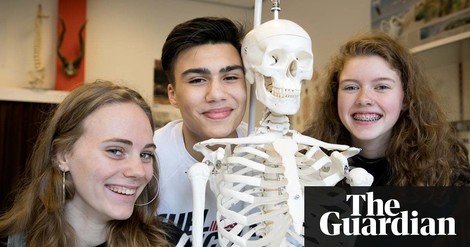Your podcast discovery platform
Curious minds select the most fascinating podcasts from around the world. Discover hand-piqd audio recommendations on your favorite topics.

piqer for: Global finds Doing Good
Michaela Haas, PhD, is the award-winning author of four non-fiction books, most recently Bouncing Forward: The Art and Science of Cultivating Resilience (Simon&Schuster). She is a member of the Solutions Journalism Network and writes a weekly solutions column for the German Süddeutsche Zeitung Magazin. Her articles have been published on CBS, the Washington Post, the Huffington Post, Daily Beast, and many other reputable media.
Why Dutch Teenagers Are Among The Happiest In The World
Everybody who has a teenager at home or knows a teenager (or who ever has been one) is aware how challenging the teenage years are. (Or is it just me? My teenage years were certainly spelled t-u-r-m-o-i-l.)
So, reports that the teenagers in the Netherlands have been consistently among the happiest, most confident and satisfied caught my attention. Compared to teenagers in other countries, they also use less drugs and alcohol, are less overweight, experience less bullying, and are generally appreciative of kind classmates and the support of their peers and family.
These findings contrast starkly with the picture in countries like Britain, where depression and anxiety are on the rise among teenagers, and the US, where the number of young people taking their own lives has risen sharply.
How do the Dutch do it? What's their secret?
The findings run contrary to what I expected. Helicopter parents, take note! Psychologists believe the high levels of happiness have to do with putting less pressure on the kids and supporting them in finding their own way.
Spoiler alert, the key to happy teens is: Give them freedom. Let them make their own decisions. Let them experiment.
The director of the World Database of Happiness, Prof Ruut Veenhoven, sums it up:
“If you look across Europe, the Dutch and the Danes are the most lenient and focus more on developing autonomy than giving priority to obedience — and that fits the society,” he says. “Children are more free to do what they want, and in doing what they want, develop an idea of what they really like and social skills. A happy boy may be sometimes not a very good boy.”
